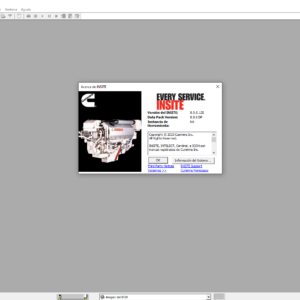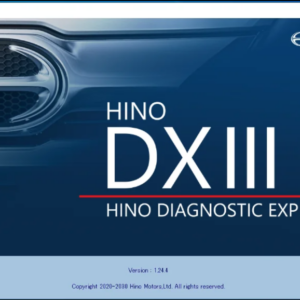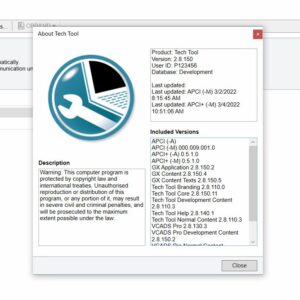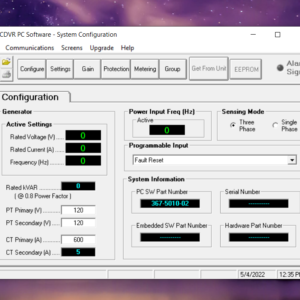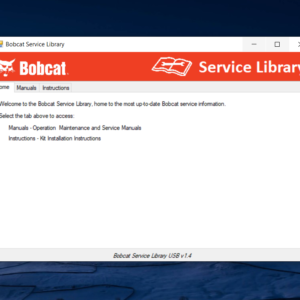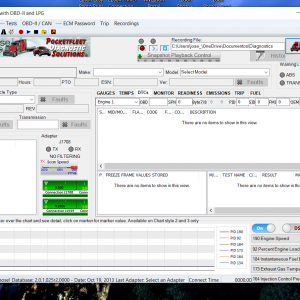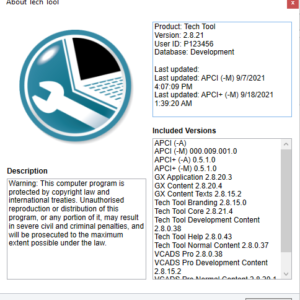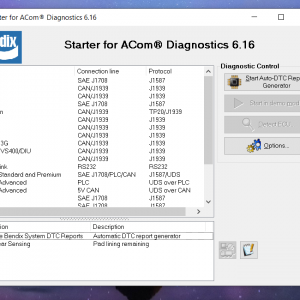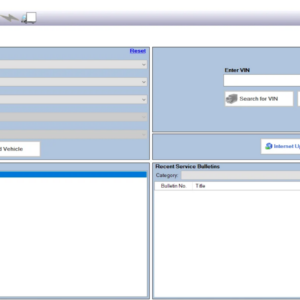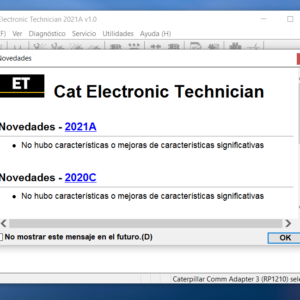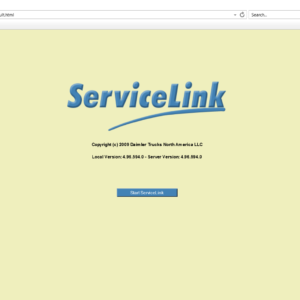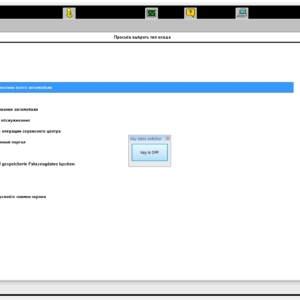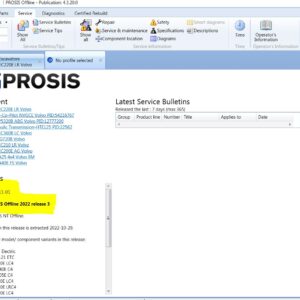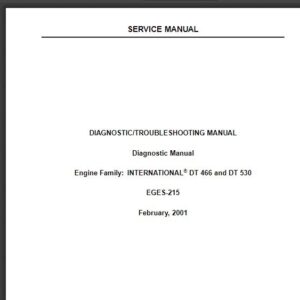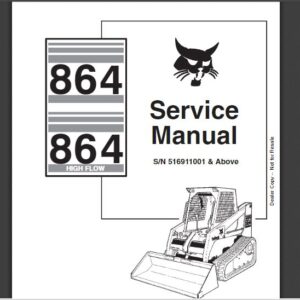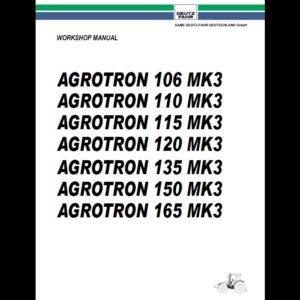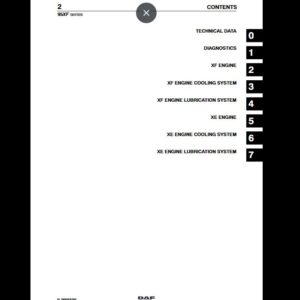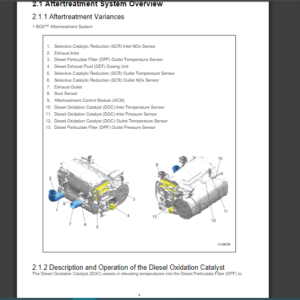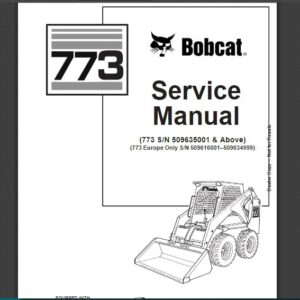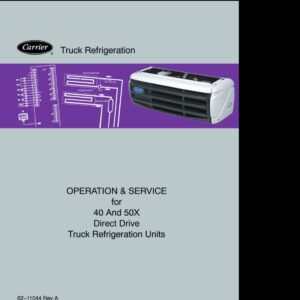Cummins X15 CM2350 X116B Performance Series (2018 & Newer) Fault Code: 288 PID: PID 372 SPN: 974 FMI: 19 SAE J1939 Multiplexing Remote Accelerator Pedal or Lever Position Sensor System- Received Network Data In Error
Circuit Description
Normally, switches, accelerators, and other components are connected to the engine control module (ECM) directly through individual wires. Multiplexing allows those same components to be hard wired to an original equipment manufacturer (OEM) vehicle electronic control unit (VECU) or transmission electronic control unit (ECU) in the cab. Then component values and states from components such as sensors, accelerators, and switches can be transmitted from the OEM VECU to the Cummins® ECM over the SAE J1939 data link.
Messages sent from OEM VECUs or transmission ECUs are received by the Cummins® ECM and used for controlling the engine. The Cummins® ECM and OEM VECU(s) must be configured properly, so that proper operation of the multiplexed components will occur.
Component Location
The SAE J1939 data link wiring and the SAE J1939 devices vary by OEM options.
Conditions for Running the Diagnostics
This diagnostic runs continuously when the keyswitch is in the ON position or when the engine is running.
Conditions for Setting the Fault Codes
The Engine Control Module (ECM) received a message from the OEM VECU via the J1939 data link, indicating the remote throttle signal wire or enable switch was shorted high or shorted low.
Action Taken When the Fault Code is Active
The ECM illuminates the red STOP ENGINE lamp immediately after the diagnostic runs and fails.
The multiplexed device will not operate.
Conditions for Clearing the Fault Code
To validate the repair, perform a key cycle, start the engine and let it idle for 1 minute.
The fault code status displayed by INSITE™ electronic service tool will change to INACTIVE immediately after the diagnostic runs and passes.
The ECM will turn off the red STOP ENGINE lamp immediately after the diagnostic runs and passes.
For On-Board Diagnostics (OBD) engines, the ECM will extinguish the Malfunction Indicator Lamp (MIL) after three consecutive trips where the diagnostic runs and passes.
The Reset All Faults command in INSITE™ electronic service tool can be used to clear active and inactive faults, as well as extinguish the MIL for OBD applications.
Shop Talk
This fault can occur when the OEM VECU detects an error on the remote throttle and or remote throttle enable switch. The ECM has been set up properly (components enabled and OEM VECU source addressed correctly) to receive multiplexed information for the remote throttle enable switch states and remote accelerator position over the J1939 data link from an OEM VECU, and the OEM VECU is transmitting the message for that component. Most OEM VECUs will not have the circuitry to detect a remote throttle switch error.
The two types of errors that can occur for this fault are:
The OEM VECU determines that the remote throttle signal line is shorted high or shorted low. This fault status is transmitted to the Cummins® ECM on the J1939 data link, which causes this fault to occur in the Cummins® ECM.
When the remote throttle enable switch has a shorted high or shorted low error detected by the OEM VECU, this fault status is transmitted to the ECM on the J1939 data link, which causes this fault to occur in the ECM. Most OEM VECUs will not incorporate fault detection on a switch.
NOTE: It is still possible to get a Fault Code 285 or 286, if there is an incorrect setup in the OEM VECU or Cummins® ECM for other components, or the remote throttle and remote throttle switch, or the data link is damaged. The OEM configurations must multiplex the remote throttle and remote throttle switch inputs together to allow the use of the J1939 multiplexing feature for these components. The INSITE™ electronic service tool can be used to monitor multiplexed components.
Reference the appropriate OEM wiring diagram when troubleshooting circuits that utilize wiring supplied by the OEM.
Possible Cause:
1) OEM issue
2) ECM calibration
-
premium volvo tech tool update 2.8.150 diagnostic software 1pc
Trucks software $150.00Rated 0 out of 5 -
CAT CDVR PC Software – Caterpillar Digital Voltage Regulator (CDVR) WINDOWS 10
CAT $45.00Rated 0 out of 5
-
Bobcat Service Library [03.2019] Service, Operator, Maintenance, Bulletines, etc full update
Bobcat $110.00Rated 0 out of 5 -
PF Diagnose 2.0.2.23 Diagnostics Software 2013 – Full Heavy & Medium Duty with OBDII Support – Online Installation Service
PF Diagnose $60.00Rated 0 out of 5 -
2021 VOLVO PREMIUM TECH TOOL PTT V2.8.21 VCADS+DEVELOPER TOOL+APCI 2021/09 ( 1 PC )
Trucks software $85.00Rated 0 out of 5 -
CAT ET 2021A (Caterpillar Electronic Technician) + Factory Password (1 PC )
CAT $65.00Rated 0 out of 5 -
download MANCATS II v14.01 2014 Diagnostic software MAN CATS ( virtual machine )
MAN $75.00Rated 0 out of 5
Related products
-
Allison 1000 & 2000 Gen 4 Fault Codes: P0218 Transmission Fluid Over Temperature Condition
1000 & 2000 Gen 4 $50.00Rated 0 out of 5 -
Allison 1000 & 2000 Gen 4 Fault Codes: P0872 Transmission Pressure Switch Solenoid E Circuit Stuck Closed
1000 & 2000 Gen 4 $50.00Rated 0 out of 5 -
Allison 1000 & 2000 Gen 4 Fault Codes: U1016 Class 2 J1850 (Class 2) Powertrain Controller State of Health Failure
1000 & 2000 Gen 4 $50.00Rated 0 out of 5 -
Allison 1000 & 2000 Gen 4 Fault Codes: P1779 Engine Torque Delivered To TCM Signal
1000 & 2000 Gen 4 $50.00Rated 0 out of 5 -
Allison 1000 & 2000 Gen 4 Fault Codes: P0875 Transmission Reverse Pressure Switch Circuit Malfunction
1000 & 2000 Gen 4 $50.00Rated 0 out of 5 -
Allison 1000 & 2000 Gen 4 Fault Codes: P1688 Unmanaged Engine Torque Delivered To TCM Signal
1000 & 2000 Gen 4 $50.00Rated 0 out of 5 -
Allison 1000 & 2000 Gen 4 Fault Codes: P0876 Transmission Reverse Pressure Switch Circuit Stuck Open
1000 & 2000 Gen 4 $50.00Rated 0 out of 5 -
Allison 1000 & 2000 Gen 4 Fault Codes: P0871 Transmission Pressure Switch Solenoid E Circuit Stuck Open
1000 & 2000 Gen 4 $50.00Rated 0 out of 5 -
Allison 1000 & 2000 Gen 4 Fault Codes: P0880 TCM Supply Voltage
1000 & 2000 Gen 4 $50.00Rated 0 out of 5 -
Allison 1000 & 2000 Gen 4 Fault Codes: U1300 J1850 (Class 2) Serial Data Communication Link Low
1000 & 2000 Gen 4 $50.00Rated 0 out of 5 -
Allison 1000 & 2000 Gen 4 Fault Codes: P0846 Transmission Pressure Switch Solenoid D Circuit Stuck Open
1000 & 2000 Gen 4 $50.00Rated 0 out of 5 -
Allison 1000 & 2000 Gen 4 Fault Codes: U2105 CAN Bus ECM Error
1000 & 2000 Gen 4 $50.00Rated 0 out of 5 -
Allison 1000 & 2000 Gen 4 Fault Codes: P0870 Transmission Pressure Switch Solenoid E Circuit
1000 & 2000 Gen 4 $50.00Rated 0 out of 5 -
Allison 1000 & 2000 Gen 4 P0719 Brake Switch ABS Input Low
1000 & 2000 Gen 4 $50.00Rated 0 out of 5 -
Allison 1000 & 2000 Gen 4 Fault Codes: U2104 CAN Bus Reset Counter Overrun
1000 & 2000 Gen 4 $50.00Rated 0 out of 5
-
SERVICE MANUAL International Engines DT466 & DT530 (2001-2003) C
INTERNATIONAL ENGINES $31.00Rated 0 out of 5 -
SERVICE MANUAL International Engines VT275 (2004 & Older)
INTERNATIONAL ENGINES $21.00Rated 0 out of 5

